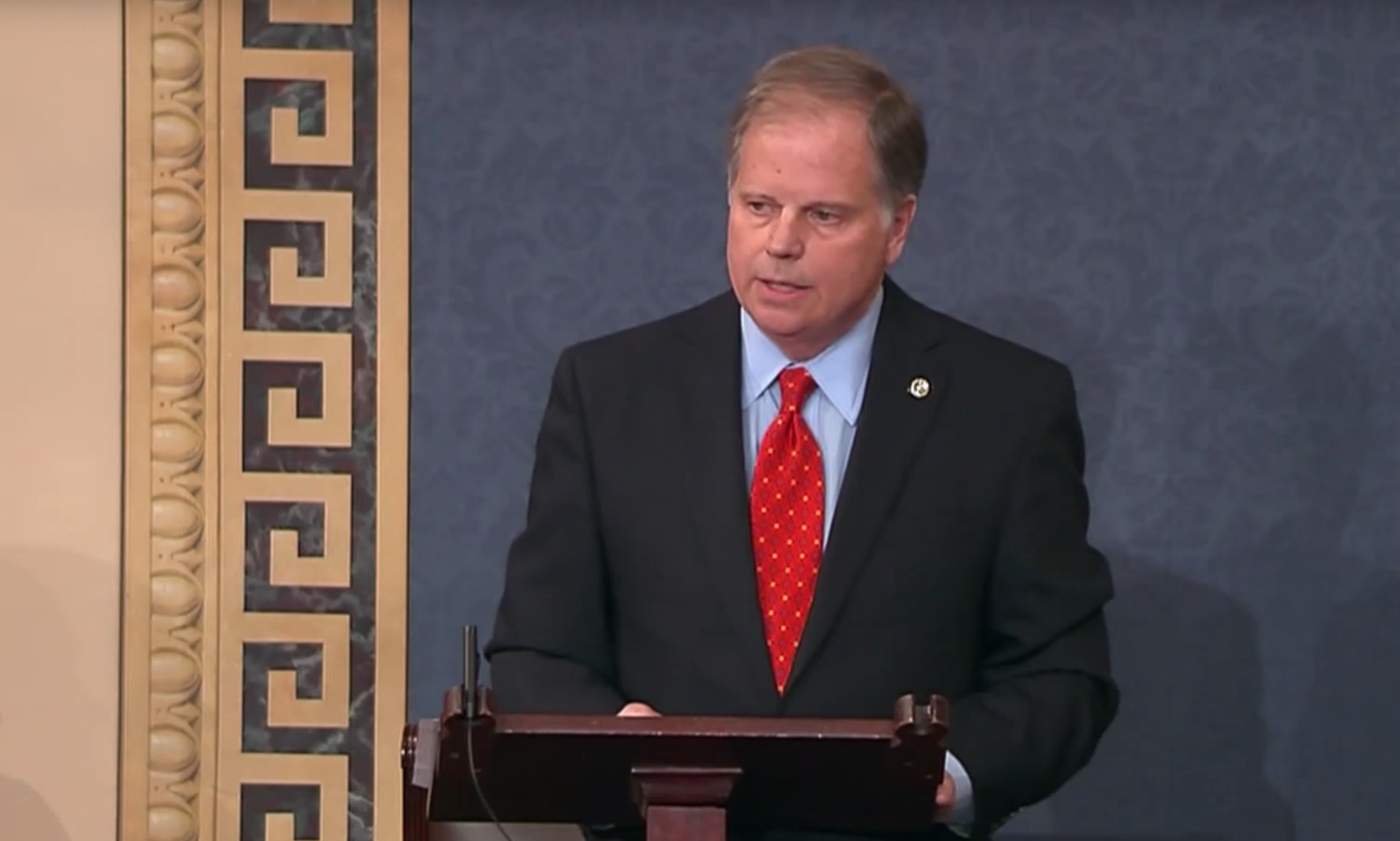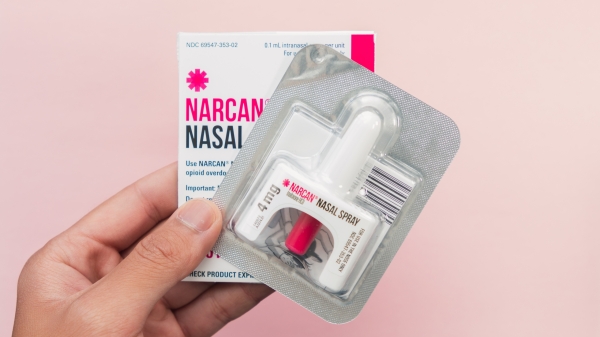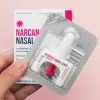Tuesday, U.S. Senator Doug Jones (D-Alabama) co-sponsored legislation introduced by Senators Lamar Alexander (R-Tennesee) and Patty Murray (D-Washington), leaders of the Senate Health, Education, Labor, and Pensions Committee (HELP), which was composed of 40 different proposals, and is the result of seven bipartisan hearings over several months, and feedback from the public.
Jones’ office said that the Opioid Crisis Response Act of 2018 (S. 2680) will improve the ability of the U.S. Departments of Education, Labor, and Health and Human Services, including the Food and Drug Administration (FDA), the National Institutes of Health (NIH), the Centers for Disease Control and Prevention (CDC), the Health Resources and Service Administration (HRSA), and the Substance Abuse and Mental Health Services Administration (SAMHSA) to address the crisis, including the ripple effects of the crisis on children, families, and communities, and improve data sharing between states.
“Many communities in Alabama and across our country are struggling to combat the opioid epidemic, and alleviate the harm it has caused to families and to our economy,” said Senator Jones. “I’m proud of the comprehensive, bipartisan efforts led by my HELP Committee colleagues to confront this issue with the urgency that it deserves. I’m also grateful that they agreed to incorporate the bipartisan bill I introduced recently with my colleagues Senators Tim Kaine and Todd Young, which would integrate job training into addiction recovery programs. We have more work ahead, but this is a strong step in the right direction.”
Alabama has more active opioid prescriptions than it has people. There is more prescription opioid abuse in Alabama than in any place in the country. Doctors remain immune from prosecution, under state law, for their role in aiding and abetting, and in some cases encouraging opioid addiction. The Alabama Medical Association has vigorously opposed legislation that would allow prosecutors to pursue doctors and pharmacists who abuse their prescribing authority.
The Opioid Crisis Response Act of 2018 will:
Authorize the Department of Labor to provide grants to address the economic and workforce impacts for communities affected by the opioid crisis, targeted at workforce shortages for the substance use and mental health treatment workforce, and to align job training and treatment services.
Reauthorize and improve grants to states and Indian Tribes for prevention, response, and treatment of the opioid crisis, authorized in 21st Century Cures, for three more years.
Spur development and research on of non-addictive painkillers, and other strategies to prevent, treat, and manage pain and substance use disorders through additional flexibility for the NIH.
Clarify FDA’s regulatory pathways for medical product manufacturers through guidance for new non-addictive pain and addiction products.
Encourage responsible prescribing behavior by clarifying FDA authority to require packaging and disposal options for certain drugs, such as opioids to allow a set treatment duration, for example “blister packs,” for patients who may only need a 3 or 7 day supply of opioids, and give patients safe disposal options.
Improve detection and seizure of illegal drugs, such as fentanyl, through stronger FDA and Customer Border Protection coordination.
Clarify FDA’s post-market authorities for drugs, such as opioids, which may have reduced efficacy over time, by modifying the definition of an adverse drug experience to include such situations.
Provide support for states to improve their Prescription Drug Monitoring Programs (PDMPs) and encourage data sharing between states so doctors and pharmacies can know if patients have a history of substance misuse.
Strengthen the health care workforce to increase access to mental health services in schools and community-based settings and to substance use disorder services in underserved areas.
Authorize CDC’s work to combat the opioid crisis, including providing grants for states, localities, and tribes to collect data and implement key prevention strategies.
Address the effects of the opioids crisis on infants, children, and families, including by helping states improve plans of safe care for infants born with neonatal abstinence syndrome and helping to address child and youth trauma.
Improves treatment access to patients by requiring the Drug Enforcement Administration to issue regulations on how qualified providers can prescribe controlled substances in limited circumstances via telemedicine.
Allow hospice programs to safely and properly dispose of unneeded controlled substances to help reduce the risk of diversion and misuse.
S. 2680, The Opioid Crisis Response Act of 2018 Legislation is the result of 7 bipartisan hearings on opioid crisis with FDA, NIH, CDC, SAMHSA, governors, experts, and families. The legislation combines 40 different proposals to try to address the opioid crisis into one bill, mostly from members of the Senate Health Committee.
“No matter where I go in Washington state, I hear from families about how devastating the opioid crisis has been to their lives and to their community,” Senator Murrat said. “I’m grateful to members on both sides of the aisle for their strong work on the policies in our bill, which will offer families and communities in Washington and across the country much-needed tools and resources as they continue working to stop this epidemic and rebuild. The work isn’t over, and I look forward to more bipartisan progress in support of everyone on the frontlines of the opioid crisis looking to Congress for support.”
“Our goal is to move urgently, effectively, and in a bipartisan way,” Sen. Alexander said. “This is a broad-based set of 40 different proposals to address the opioid crisis. The bill could help states and communities begin to bring an end to the opioid crisis by reducing the number of prescription opioids, stopping illegal drugs at the border, and accelerating research on non-addictive pain medicines. We will consider and seek to approve this bill next Tuesday, so we can get it to the Majority Leader and to the Senate for prompt consideration, along with other important proposals that may be coming from other committees.”
Deaths from drug overdoses have soared in recent years and now exceeds murder and automobile accidents combined. 62,469 Americans died from drug overdoses in 2016 al one, which is more than died in the entire Vietnam War. That is up from just 16,849 in 2000. That does not include addicts who commit suicide or people killed by violence in the drug trade.
Doug Jones was elected to the U.S. Senate on December 12.





















































